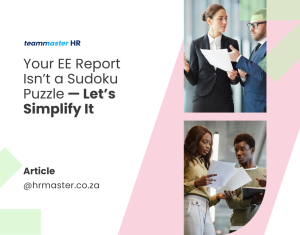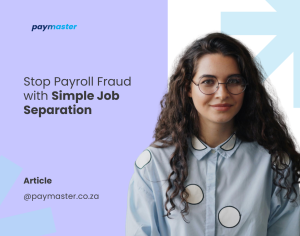In 2025, new rules on tax directives and retirement funds in South Africa are changing how lump sum payouts and retirement savings are handled. Because these changes affect both payroll and HR teams, employers need to stay informed. Otherwise, they may face delays, penalties, or even problems with compliance.
1. What Are Tax Directives and Why Are They Important?
To begin with, tax directives are simple instructions from SARS. They guide employers on how much tax to deduct from certain payments. For example, these payments include retirement benefits, severance pay, and commissions. Without a directive, the wrong tax may be deducted. As a result, employers can face penalties and added stress.
Action Points:
- First, always apply for a tax directive before making any lump sum payment.
- Next, use SARS eFiling or payroll software to submit requests in the fastest way.
- Finally, wait for approval before paying. If not, you could run into tax mistakes later.

2. Retirement Reform and the Two-Pot System
In addition, the “two-pot system” that started in 2024 still applies in 2025. Under this system, employees can take out a part of their savings right away. At the same time, the rest stays safe in the retirement pot for the future. Because of this balance, employees can cover short-term needs while also keeping money for retirement.
Action Points:
- First of all, explain to staff the clear difference between the “savings pot” and the “retirement pot.”
- Then, update payroll systems so they follow the new fund rules correctly.
- Moreover, work with pension and provident fund managers to make sure deductions and reporting are accurate.
3. How Tax Directives Affect Payroll and HR Teams
As a result of these changes, tax directives now play a bigger role in payroll and HR. Accuracy is more important than ever. At the same time, proper recordkeeping protects the business and helps build trust with employees. When teams follow the right steps, they avoid risks and keep payroll running smoothly.
Action Points:
- First, train payroll and HR staff on the latest tax directives process.
- In addition, create a checklist for retirements, retrenchments, and resignations that always includes directive applications.
- Lastly, keep all important documents, such as contracts, withdrawal letters, and ID copies, for audits.

4. How to Avoid Delays and Penalties in Tax Directives
On the other hand, mistakes with tax directives can cause serious problems. Payments may be delayed, employees can become frustrated, and SARS may even investigate. However, by staying organised and careful, these risks can be reduced.
Action Points:
- To start, check that tax directive numbers match the payments every month.
- In addition, keep a log of all directive applications and their outcomes.
- Finally, ask a tax consultant for help with difficult cases, such as expatriates or multiple funds.
Final Thoughts
In conclusion, following the rules for tax directives in 2025 is not just about avoiding penalties. Instead, it also makes payroll smoother, prevents delays, and shows that your business is well managed. Therefore, when employers stay informed and follow the updates, they protect both their employees and their company.





